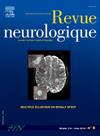法国神经内科住院医师期间的运动障碍培训:一项关于教育差距和未来前景的全国性调查。
IF 2.3
4区 医学
Q2 CLINICAL NEUROLOGY
引用次数: 0
摘要
运动障碍(MDs)亚专科是神经病学的一个关键学科,需要专门的专业知识和培训来准确诊断和管理。然而,法国神经病学住院医师培训的结构化数据缺乏。本研究旨在评估法国神经内科居民医学博士教育的可及性、质量和一致性,并确定需要改进的领域。2024年8月至11月,一项全国性的在线调查在法国各地的神经内科医生中进行。问卷评估了医学博士的理论和实践经验、程序性培训、自我报告的管理医学博士的信心以及住院医生对培训的期望。对反馈进行描述性分析,比较住院时间和医院类型。数据来自24所大学医院的151名神经内科住院医师。医学博士的培训具有高度的异质性:47.3%的人报告接受了≤5小时的医学博士理论教育,而只有2.7%的人接受了超过20小时的教育。实际接触是有限的,25.2%的居民在监督下参加了医学咨询,只有4%的居民在监督下进行了肉毒杆菌毒素注射。管理MDs的信心普遍较低,尤其是肌张力障碍(60.9%感到措手不及)和抽动秽语综合征/抽搐(79.5%感到措手不及)。居民们指出了结构性教育、程序性培训和获得指导方面的主要差距。他们主张建立标准化的医学博士课程,增加有监督的实践培训,并开发创新的教育工具。总之,法国神经内科住院医师期间的医学博士培训不一致,在理论和实践方面都存在显著差距。标准化医学博士教育,扩大监督程序培训,促进指导计划是提高住院医师技能的必要步骤。本文章由计算机程序翻译,如有差异,请以英文原文为准。
Training in movement disorders during neurology residency in France: A national survey on educational gaps and future perspectives
Movement disorders (MDs) subspecialty is a key discipline in neurology, requiring dedicated expertise and training for accurate diagnosis and management. However, structured data on neurology residency training in this field in France are lacking. This study aims to evaluate the accessibility, quality, and consistency of MDs education among French neurology residents and to identify areas for improvement. A national online survey was conducted from August to November 2024 among neurology residents across France. The questionnaire assessed theoretical and practical exposure to MDs, procedural training, self-reported confidence in managing MDs, and residents’ expectations regarding training. Responses were analyzed descriptively, with comparisons across residency years and hospital types. Data were obtained from 151 neurology residents at 24 university hospitals. MDs training was highly heterogeneous: 47.3% reported receiving ≤ 5 h of theoretical MDs education, while only 2.7% exceeded 20 h. Practical exposure was limited, with 25.2% of residents having attended MD consultations under supervision, and only 4% having performed botulinum toxin injections under supervision. Confidence in managing MDs was generally low, particularly for dystonia (60.9% felt unprepared) and Tourette syndrome/tics (79.5% felt unprepared). Residents identified major gaps in structured education, procedural training, and access to mentorship. They advocated for a standardized MDs curriculum, increased supervised practical training, and the development of innovative educational tools. In conclusion, MD training during neurology residency in France is inconsistent, with significant gaps in both theoretical and practical exposure. Standardizing MD education, expanding supervised procedural training, and fostering mentorship programs are essential steps to improve resident skills.
求助全文
通过发布文献求助,成功后即可免费获取论文全文。
去求助
来源期刊

Revue neurologique
医学-临床神经学
CiteScore
4.80
自引率
0.00%
发文量
598
审稿时长
55 days
期刊介绍:
The first issue of the Revue Neurologique, featuring an original article by Jean-Martin Charcot, was published on February 28th, 1893. Six years later, the French Society of Neurology (SFN) adopted this journal as its official publication in the year of its foundation, 1899.
The Revue Neurologique was published throughout the 20th century without interruption and is indexed in all international databases (including Current Contents, Pubmed, Scopus). Ten annual issues provide original peer-reviewed clinical and research articles, and review articles giving up-to-date insights in all areas of neurology. The Revue Neurologique also publishes guidelines and recommendations.
The Revue Neurologique publishes original articles, brief reports, general reviews, editorials, and letters to the editor as well as correspondence concerning articles previously published in the journal in the correspondence column.
 求助内容:
求助内容: 应助结果提醒方式:
应助结果提醒方式:


